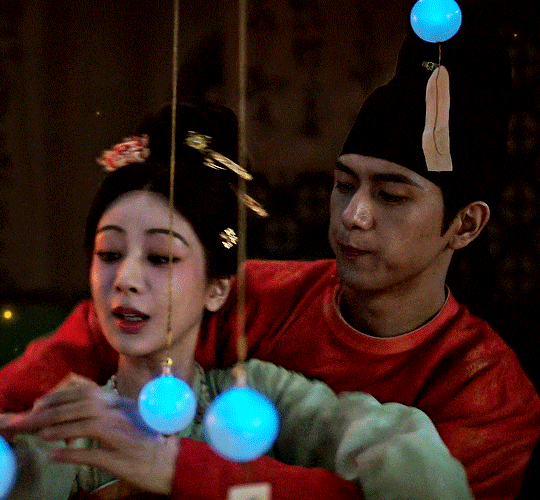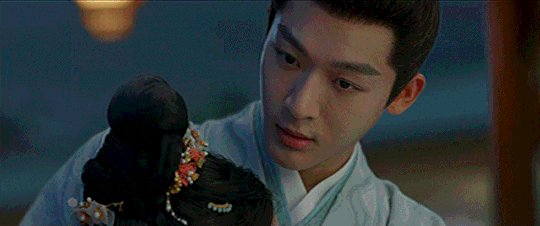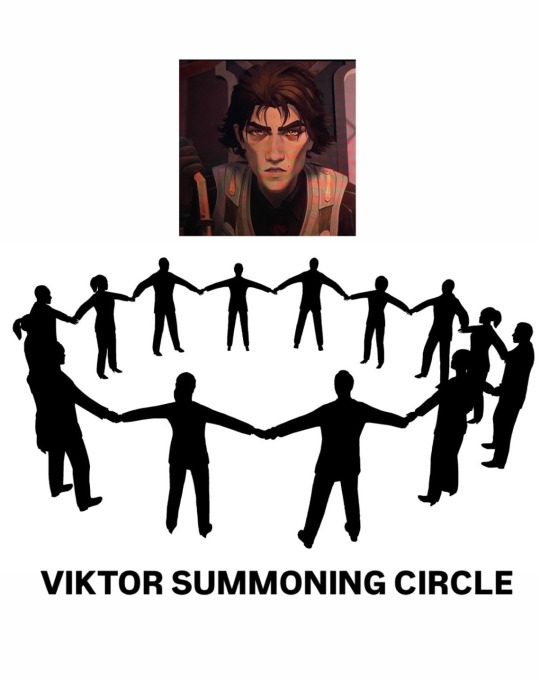#Adversities
Explore tagged Tumblr posts
Text
Thriving Amid Adversity: The Science Behind Personal Growth
Dear readers,
Today, let's delve into a topic as essential as it is challenging: how to turn life's obstacles into opportunities for personal growth. I know facing adversity can seem like a daunting task, but science shows us that it's possible not only to survive but also to thrive amidst difficulties.
Understanding Resilience:
Resilience, or the ability to bounce back from adverse situations, is one of the cornerstones of personal growth. Studies show that resilient individuals have a greater capacity to deal with stress, adapt to changes, and find creative solutions to problems.
Neuroplasticity and Shift in Perspective:
Our brains have an incredible ability to adapt and reshape throughout life, a phenomenon known as neuroplasticity. By facing challenges, we can train our brains to develop new skills, strengthen emotional resilience, and cultivate a growth mindset.
The Importance of Social Support:
Social support plays a crucial role in our ability to face adversity. Studies show that having a strong and supportive network can reduce the negative effects of stress and increase emotional resilience.
Practices to Cultivate Resilience:
Gratitude Practice: Cultivating a sense of gratitude, even in the toughest moments, can help shift our perspective and remind us of the good things in life.
Mindfulness and Meditation:The practice of mindfulness can help us develop greater awareness of our thoughts and emotions, allowing us to respond more calmly and balancedly to adversities.
Self-Compassion: Treating ourselves with kindness and compassion, rather than self-criticism, can increase our emotional resilience and strengthen our ability to cope with life's challenges.
Conclusion:
Ultimately, adversities do not define who we are, but rather how we choose to respond to them. By adopting a science-based approach to dealing with life's challenges, we can transform each obstacle into an opportunity to grow, learn, and become stronger. May we all flourish amidst adversity and find meaning and purpose in every difficult experience we face.
With love and perseverance,
Simone 🌸🌿
#resilience#personal#self care#self love#self discovery#self discipline#Adversities#self compassion#mindfulness#gratitude#neuroplasticity#personal growth#mindset#perseverance
2 notes
·
View notes
Text
Adversity Is Our Strength
The adversities we face in lifehelp to build our strengththat is neededto forge aheadandconquer the harder ones that follow

View On WordPress
#Act of Writing#Adversities#Adversity#Being a writer#Blog#Blogging#Craft of writing#Gift of writing#Good Writing#Great Writing#Honolulu#Honolulu Blogger#I am a writer#I Love To Write#Inner Strength#Inspiration#Life#Life Affirming#Life Goals#Life is a journey#Life&039;s Obstacles#Love of writing#Mark&039;s Musings#Mark&039;s Writing Motto#Midlife Reflections#MidlifeManiacalMe#Never be afraid#Never Give Up#Never Giving Up#Never Know How Strong We Are
0 notes
Text
The Weight We Carry
The Weight We Carry #Burdens #Problems #Release
Image Credit: OpenClipart-Vectors Who has not felt at some point and time that we are carrying the weight of the world on our backs and shoulders, like Atlas (the ancient Greek Titan Atlas holding the heavens on his shoulders)? To release the weight of our worries, we have to learn and train ourselves to let it go. Easier said than done? Of course, it is. When you release your burdens, how do…
youtube
View On WordPress
0 notes
Text

"Luminous Persistence"
"We move forward despite adversities because, in the darkness, we find the strength to keep going, aware that at some point, the light will illuminate us again."
#persistence#light#hope#better#adversities#darkness#strength#forward#awareness#follow#perseverance#purple#pink#renewal#pixelart#art#redbubble
0 notes
Text

all in the eyes of a boy
#cael does art#Zelda#majoras mask#fierce deity#fierce deity link#the flowers are dogwood trees#which means our love will overcome adversity#and also pleasure and pain and durability#I Struggled with palette so I’m posting to commit to it#I think I’m in that weird art skill vs eye plateau of being generally uncertain about everything#why is there a IV on there you might ask#well I have Concepts for more#but the concepts were conceptualized after work began on this
1K notes
·
View notes
Text
"coomer" "gooner" "porn addicted " "degenerate"
are terms that make me see Red because of the type of people that use them(mainly fash)
and the idea of being so sex and kink negative is in itself queerphobic asf.
3K notes
·
View notes
Text

I made another one
#elden ring#shadow of the erdtree#messmer the impaler#rellana twin moon knight#lotta nobodies in this one so get ready 👍#Fire knight captain kood#black knight captain Huw#Melina#hornsent grandam#commander gaius#fire knight queelign#shadow militiamen#miquella the kind#Notes for this one: I am weirdly adverse to using the classics of the format#There was originally going to be a kys message from the hornsent but I decided against it#there were other jokes that I wanted to tell that mattered more#Also I don’t know if this would count as Rellana x Messmer but if it does in your head then good for you#He has two hands and two snakes he can have many partners
2K notes
·
View notes
Text




I believe Fugo and Trish would be besties in the most awkward way possible
#jojo’s bizarre adventure#jjba#jojo part 5#golden wind#vento aureo#pannacotta fugo#trish una#futrish#guido mista#giorno giovanna#ness’ art#first jojo art in a while :^)#I’ve had this in my head for a while. this is very self-indulgent#thinking about how they’d actually interact after fugo returns is something I like thinking about#bc they had some silly moments / like the ones I referenced in the comics / but also#there would definitely be tension since fugo was like ‘why would you guys want to protect someone you just met…’#but I’d like to believe that fugo and trish bond over being people who didn’t have the most confidence at first#and we able to improve their confidence by being forced through adversity (fugo w the events in phf and trish w the latter half of gw)
2K notes
·
View notes
Text

Spent too long not drawing smallidarity fluff and almost died of malnourishment
#smallidarity#trafficshipping#tubby art#was talking to a friend about Joel being adverse to hugs because affectionate intimacy vs masculinity complex#came to the conclusion he'd probably only initiate the hug if he was tired woozy or drunk. lol#anyway I like him being engulfed in Jimmy's wings. I like Jimmy's wings inadvertently shielding someone other than himself
590 notes
·
View notes
Text
I've been thinking about my taste in historical c-dramas and realized I always lean toward political/palace intrigue over xanxia or wuxia fantasy dramas. So, without further ado, my list of favorite historical c-dramas (with a happy ending) that ground the romance in political power struggles.
1. The Double

Cast: Wang Xing Yue, Wu Jin Yan
Synopsis: After being framed for adultery by her husband and his family, Xue Fang Fei takes on the identity of the deceased daughter of a high-ranking court official in order to clear her family's name and take revenge on the people who wronged her.
This drama is flawless. Both the FL and the ML are two of my favorite characters of all time. They're both smart, funny, and badass in their own way. Their relationship is one of mutual respect and admiration, and the way they fight for and support one another is beautiful and romantic. The villains are fleshed out and great at making you hate everything about them while also understanding their motivations. Wang Xingyue gives an INCREDIBLE performance as Duke Su, and while I think Wu Jin Yan is too old to believably play a teenager, she is a fantastic actress who does a complicated character justice. I really have nothing negative to say about this drama. It's perfect to me.
2. Blossom

Cast: Li Yun Rui, Meng Zi Yi
Synopsis: A chance meeting between a woman leaving her cheating husband and a general helping a second prince overthrow the crown results in both of their deaths, intertwining their fates. When the woman wakes up reborn in her 10 year old body with all her memories intact, she has the opportunity to change her fate, the fate of the general, and maybe the entire country.
Dou Zhao and Song Mo are my parents, full stop. This couple is so good - both smart and capable in their own right, but damn near unstoppable together. Their chemistry is great. Their love and devotion for each other is crazy, and they're both just so, so pretty 🩷. I never found this drama boring, but I have seen some people say they thought the back half drags a bit. I think if you're not fully enamored with the couple, that might be the case since the back half focuses more on palace power struggles, but I'm a political intrigue girlie, so I was hooked the whole time.
3. Are You The One

Cast: Zhang Wan Yi, Wang Chu Ran
Synopsis: An anti-heroine bandit and a vassal Prince army general find their lives entwined when he saves her from near death and uses her resulting amnesia to trick her into thinking they're a married merchant couple in order to use her to catch the mastermind behind her bandit stronghold. As he sinks deeper into his own lies, he desperately tries to cling to their made-up life, fearing the day she regains her memories...
THIS SHOW!!!! My beautiful power couple who outsmart everyone but each other and wield death with knives and swords. This show does so many things right. The palace politics are interesting. The second male lead is compelling and complicated in a way that makes you seriously consider him as a contender. Both of our protagonists are smart, capable fighters who slowly realize they want the same things but have chosen different paths to achieve their goals. Also, the ML is a SIMP, which I am always here for.
4. New Life Begins

Cast: Bai Jing Ting, Tian Xi Wei
Synopsis: Ignored by his Emperor father and neglected by his concubine mother, the 6th prince of Xin Chuan marries the daughter of a farming family from a neighboring country as part of an annual marriage selection. Together, they face the challenges of court politics, royal etiquette, treatment of women, and international relations as the prince's reputation rises in the court of Xin Chuan and he begins to earn the respect of his father.
The ML and FL are great, and their relationship is solid, lovely, and heartwarming. But the real delight of this show is the women and their friendships. The unwavering support and love all the female characters have for one another is the true heart of this show. If you love women supporting women and women fighting for change and equal access to power while a few great men support them, I can not recommend this one enough.
5. The Princess Royal

Cast: Zhang Ling He, Zhao Jin Mai
Synopsis: After 20 years in an arranged marriage, Princess Li Rong has her Prince Consort, Pei Wenxuan, assassinated after she believes he's been slowly poisoning her. She dies from the poison soon after his death and wakes up to find she's gone back 20 years, memories intact, to before she and Pei Wenxuan got married. She quickly realizes that Pei Wenxuan is also back, and the two of them must decide what parts of their past they'll repeat and what parts they can change to avoid their fate.
Li Rong is one of my favorite female characters. She's cold, closed-off, analytical, and so repressed it's painful. She's tries so hard to protect herself, that she ends up missing out on the most important thing in her life the first time around and her bravery in trying to change herself enough to not miss it a second time is breathtaking. Watching fiery and charismatic Pei Wenxuan try to properly win her heart in their second life is one of the most swoonworthy romances I've watched. The politics in the show are engaging, and there is interesting meta to be had around how our desires and how we prioritize those desires affect the course of our lives.
6. The Story of Kunning Palace

Cast: Zhang Ling He, Bai Lu
Synopsis: A wicked Empress is pushed to her death after a coup overthrows the Emperor. She wakes up in her 18 year old body and vows to make different choices this time around. But changing her course is more difficult than she imagined, and things become more complicated when she gets entangled with the man responsible for the coup and her death in her first life.
I thoroughly enjoyed the politics and court drama of this show, but ultimately, it's the performances of Bai Lu, Wang Xingyue, and especially Zhang Linghe as the intense and unhinged Xie Wei, that really make this drama worth watching. Bai Lu's chemistry with both MLs is fantastic, and her scenes with Zhang Linghe are so charged that you'll be holding your breath. They both chew their way through this drama immaculately. Watch it for the simple joy of watching two actors ACT.
7. Melody of Golden Age

Cast: Ding Yu Xi, Ancy Deng
Synopsis: In order to protect her family, the 6th daughter of a low-level court official marries the favored general of the queen dowager in place of her older sister. Neither party wants the marriage, but neither can afford to anger the queen. They decide to bide their time and divorce in a year, but in the meantime, they help one another achieve various goals... and, of course, fall in love for real.
I can't be rational about Ding Yu Xi. If he's in it, I'm tuned in. His chemistry with Ancy Dang is fantastic, and watching his character, Shen Du, slowly melt and fall for his wife, Yan Xing, is so, so enjoyable. I was less interested in the mystery/court politics of this one, but I still liked it a lot. The romance is very good and Shen Du and Yan Xing are dreamy protagonists.
8. Blossoms In Adversity

Cast: Hu Yi Tian, Zhang Jing Yi
Synopsis: The feisty and brilliant daughter of a noble family must find a way to keep all the women and children in her family alive when her grandfather offends the king and gets their family's wealth, property, and status stripped away, as well as all the men banished to a labor camp.
This show is all about the FL, Hua Zhi, for me. She is a fantastic character - strong, sensible, smart, and fearless - while still managing to hold on to her heart and see the good in the people around her. Her love story with the prince/commander lacked something for me. I think I wanted it to be more intense than it was and might have worked better if a different actor played him. But, Hua Zhi, her family dynamics, the court politics, and all of the side characters were beyond enjoyable.
9. Flourished Peony

Cast: Li Xian, Yang Zi
Synopsis: A woman in a terrible marriage makes an escape with only the clothes on her back and a rare potted peony her mother left her. She ends up pawning the peony to the king's flower envoy in order to start a business, and the two become entangled as a result.
The FL, Mu Dan, is a badass. She tackles villain after villain with just her wits and the sheer determination to live her life freely. The ML, Cheng Yang, realizes early on that he's found a kindred spirit, but neither of them are interested in romance at first. I loved that they are genuinely friends for the majority of the show and that the ML trusts Mu Dan to solve her own problems, rarely stepping in to help her because he knows she's strong enough to solve it herself. This show, much like New Life Begins, highlights the horrors of being a woman in this time period. And like New Life Begins, one of the best things about this show is the women Mu Dan collects throughout her journey, building her own little found family. Flourished Peony has a 2nd season on the way that will air some time in the back half of 2025, but the end of S1 is solid and won't leave you hanging if you decide to watch it before S2 comes out.
10. The Rise of Ning

Cast: Zhang Wan Yi, Ren Min
Synopsis: After spending most of her childhood in the country away from her scholarly family, Yi Ning, the black sheep daughter, returns home for her grandmother's birthday. Rivalry between her and her other siblings and cousins cause tension, but she finds an ally in her father's illegitimate son, Shen Yuan, another black sheep who has cultivated a life for himself in the shadows of a family that doesn't acknowledge him. Together, they try to solve the mystery of Yi Ning's mother's death and decades old case involving Shen Yuan's master. A case that puts them in contact with a dangerous man from Ning's past.
Full warning, the romance in this is between Yi Ning and Shen Yuan. Spoiler: No, they're not really siblings. He knows they're not very early on. She finds out much later, and the romance starts after that, but he's very clearly already fallen for her while she still considers him a brother. If the trope bothers you, skip this one.
If you're like me and don't care 😂, this show is great. Yi Ning is a sweetheart with a spine. The second male lead is a combination of incredibly handsome and scarily unhinged, which makes him all the more sinister. Shen Yuan is smart, calm, and deadly - my male lead kryptonite!!!, and his devotion to Ning is so wonderful. I also have a Zhang Wan Yi bias. His face is just very, very good to me. The mystery plot is engaging, and I didn't ever find myself bored with this show.
#the rise of ning#flourished peony#blossoms in adversity#melody of golden age#the story of kunning palace#the princess royal#new life begins#are you the one#blossom#the double#wang xingyue#zhang linghe#bai lu#wu jinyan#bai jingting#yang zi#li xian#zhang wanyi#ren min#hu yitian#zhang jingyi#ancy deng#ding yuxi#zhao jinmai#tian xiwei#wang churan#li yunrui#meng ziyi#cdrama recs
468 notes
·
View notes
Text
I feel like both Shang Qinghua and Mobei Jun are naturally touch adverse but also are now touch starved due to trauma
So they end up having scheduled cuddle time as a couple because they can only handle physical affection in small bursts when they know to expect it (Mobei throwing Shang Qinghua over his shoulder like a sack of grain doesn't count. That's just more efficient)
Like Shang Qinghua is going through Mobei's schedule and is like "and after court I have penciled in a quick hug if that is satisfactory. I have a longer cuddle session scheduled for after dinner."
Sha Hualing: are you even a couple? You don't even hold hands
Mobei: not in court. That's scheduled for afternoon walks.
Sha Hualing: you schedule handholding?
Mobei Jun: why would you not schedule that?
#svsss#shang qinghua#mobei jun#moshang#svsss headcanon#brought to you by a touch adverse autistic who needs physical contact to feel human
584 notes
·
View notes
Text

"you just feel yourself let go."
still thinking about this episode. man. 💪💥
#misfits and magic#misfits and magic 2#mismag 2#mismag#evan kelmp#d20#dimension 20#just like art#im SO behind on mismag but i literally cant believe this happened still#''why did you add the origami cranes to this?'' thank you for asking: i just think theyre neat!#also i know they didnt mention it explictly but i truly believe that evans last moments slipping into the pool and death would be about#if he made a difference. about if the struggles of it all were worth it. about if he was worth it.#especially considering he decided to haunt the closest thing to his friends.#so i think it makes sense that his life flashback would include physical proof of 1) his connection to the world and how he helped to chang#the world especially in the face of adversity#and 2) an item literally MADE for communication and connection to others.#both on a global scale when magic left AND the evolution of the magic that his closest friends and him used.#''but the origami cranes are based on storm petrels? a black bird with a white stripe near the tail? why are the cranes colourful here?''#firstly: youre full of questions today mister.#secondly: i tried to make them black but i really liked being able to differentiate between the cranes using fun colours#also i tried just overlaying a dark colour on top but it still didnt do it for me#but i tried to keep them close to the petrels: i kept the '''''white''''' stripe near the tail! id like some points for that!#excuses aside: i hope youre doing well! thanks for looking and reading!
410 notes
·
View notes
Text

scientist/anthropologist/lab gem ily
#my art!#geminitay#hermitcraft#hermitcraft fanart#geminitay fanart#hermitblr#pls reblog idk why ppl are adverse to rebloggun art that isnt a full painting
678 notes
·
View notes
Note
But how much would that affect them once they are reunited? Emmet automatically dismissing Ingo when he does something bad for him, for one moment he forgets he actually is there again now and it's only when Ingo's warm and very real hand rests on his shoulder that he snaps out of it. Or Ingo seeing Emmet on the couch from the corner of his eyes and his blood runs cold, his brain is sure that something must be wrong, he's dying or badly hurt bc he is seeing the man in white again, and it's only when Emmet is holding onto his arms, saying words that he can't process through his panic, that he remembers where he is and that everything is okay now. It would be a while before they got back to any resemblance of normalcy after so much trauma they both went through.



are you real?
- ingo just recently returned; emmet can hardly believe it
- when he appears, emmet doesn’t look at “ingo” bc he knows he isn’t real (but also bc if he does, the illusion will be broken that much quicker)
- physical touch grounds emmet
#OUGHHH THATS SOME TASTY ANGST#also I hc that emmet is generally touch adverse unless you’re someone he trusts#subconscious guardian angel au#submas#emmet#kudari#nobori#ingo#pokemon fanart#pokemon#fanart#tw eye contact#ask#angst
1K notes
·
View notes
Text

may we all join hands, lift up our downtrodden spirits, and pray for the tiniest little fragment of viktor for geeked week.
riot, we beg of you, we just want a voice reveal…the viktor drought is killing us…
#like to charge#reblog to cast!#are my hopes high? absolutely not#must me remain strong in the face of adversity and poor odds?#ABSOLUTELY YES.#viktor nation we’ll get there one day!#viktor nation#viktor arcane#arcane#arcane season 2#arcane s2#geeked week
507 notes
·
View notes
Text
The most thrilling part of Sinners for me was when Sammie begins reciting the Lord’s Prayer and Remmick fucking JOINS IN. The fact that when you’re raised Christian you hold onto this kind of shred of hope that no matter what, the name of Jesus will banish all evil and all demons. So for Remmick to just be like “I love that prayer, it gives me such comfort🥺🥺” is so fucking CRAZYYYY
#it’s like that part in the IWTV book where Daniel asks if Louis is adverse to crucifixes#and Louis is like “I actually quite like looking at crucifixes”#the thing that saved Sammie was his music#NOT Christianity#sinners#Remmick#preacher boy sammie#sammie sinners#sinners 2025
174 notes
·
View notes